AUGUST 2024
In this issue
FEATURES: SUSTAINABLE LIVING
Saving Ecuador’s Los Cedros again and again and again …
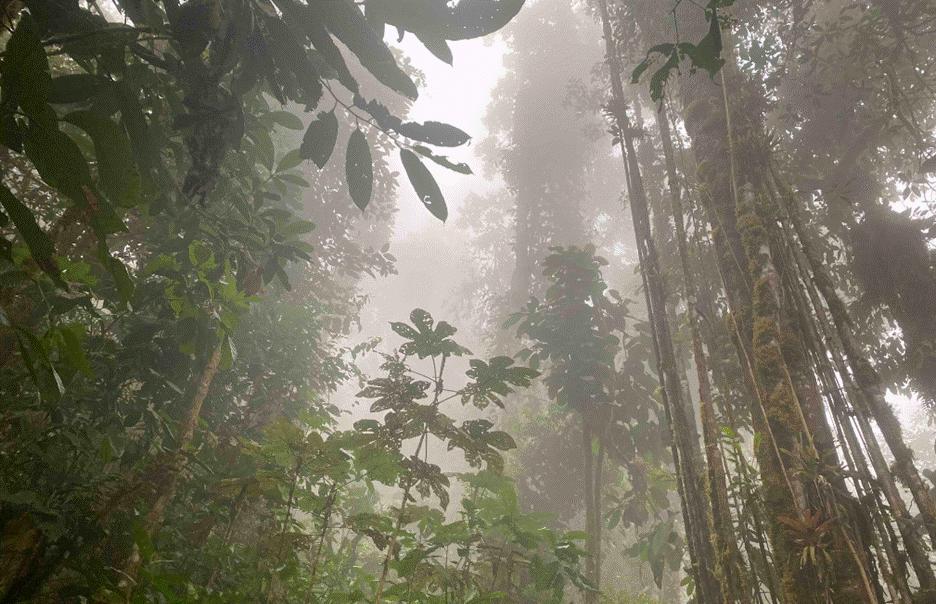
“… it is now, in the words of Bitty Roy, Professor of Ecology from the University of Oregon, ‘the best forested watershed in western Ecuador.’”
– John Seed
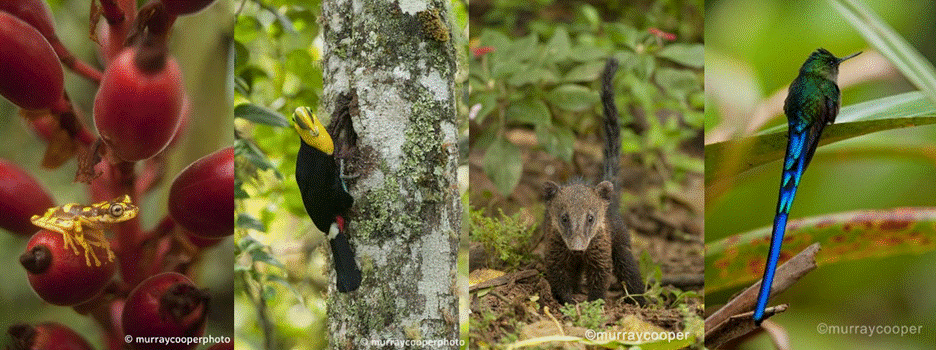
The Rainforest Information Centre and I personally have been working in Ecuador since the mid 1980s and one of our projects is the Los Cedros Biological Reserve which we helped create in 1988 with the help of a substantial grant from AusAID. Over the years we have “saved” Los Cedros over and over from all manner of threats like illegal logging, poaching and colonisation so that it is now, in the words of Bitty Roy, Professor of Ecology from the University of Oregon, “the best forested watershed in western Ecuador.”
In 2016 we discovered that a mining concession in Los Cedros had been secretly granted to a Canadian mining company. Further investigations revealed that this was the tip of a vast iceberg and Los Cedros was one of over 40 Bosques Protectores (protected forests) covering 750,000 Ha which had been surreptitiously handed to international mining companies. A million Ha of indigenous territories had been similarly conceded. Australian companies including BHP and Gina Reinhardt are among the “beneficiaries”.
Since then our court case against the Canadian mining company which set up operations at Los Cedros wound its way up to the Ecuadorian Supreme Court. Ecuador is the first country in the world to include the “Rights of Nature” in its constitution so our case was based on this. For the first time ever, 3 years ago, the court gave this clause teeth by ejecting the mining company, setting a national and worldwide precedent (see The Guardian story).
Based on this precedent, several other natural areas have since ejected miners when lower courts utilised this precedent.
Reduce packaging & save money: DIY non-dairy milks
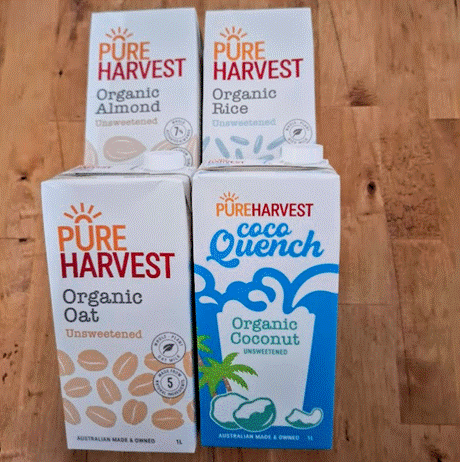
-Liz Bassett
It is surprisingly easy to make non-dairy milks (or mylks, if you prefer) if you have a high-speed blender & a nutmilk bag or equivalent.Making your own non-dairy milks means you can control what you eat, and can also save a lot of money & prevent adding long-life packaging to landfill. Long-life cartons used for shelf-stable packaging for non-dairy milks still cannot be effectively recycled due to their inner layers of foil and plastic. Some councils apparently can recycle them. Find out what your local council accepts for recycling atPlanet Ark here.
Here are two types of basic recipes:
Type 1: SOAK & DRAIN then BLEND & STRAIN: soak first, discard the soaking water & rinse, then blend with fresh water and strain the result.
- Oat milk: SOAK oats at least 30minutes & then DRAIN & rinse; BLEND 1 oats: 4 fresh water (by volume), then STRAIN
- Almond milk (raw, unsalted; with or without skin): SOAK almonds at least 6 hours & then DRAIN & rinse; BLEND 1 almonds: 4 fresh water (by volume), then STRAIN
Type 2: just BLEND & STRAIN:
- Rice milk: BLEND 1 cooled cooked rice: 2 water (by volume); STRAIN
- Hemp milk: BLEND 1 hulled hemp seeds: 6 water (by volume); STRAIN
- Coconut milk: BLEND 1 desiccated coconut: 2 boiling water (by volume); cool & STRAIN
NOTES:
- Equipment needed: 1) Something to pulverise with: a high-speed blender; 2) Something to strain the result: a nut milk bag, cheese cloth or equivalent
- Consistency: use more or less water and more or less straining depending on how thick you like the result
- Additives: add a pinch of salt to enhance flavour, or a little of something sweet, such as honey or dates before blending
- Leftover pulp: bulk up smoothies or use in baked goods such as cookies
- Refrigeration: Milks should be refrigerated and used within about 3 days
Finding my Ecovillage
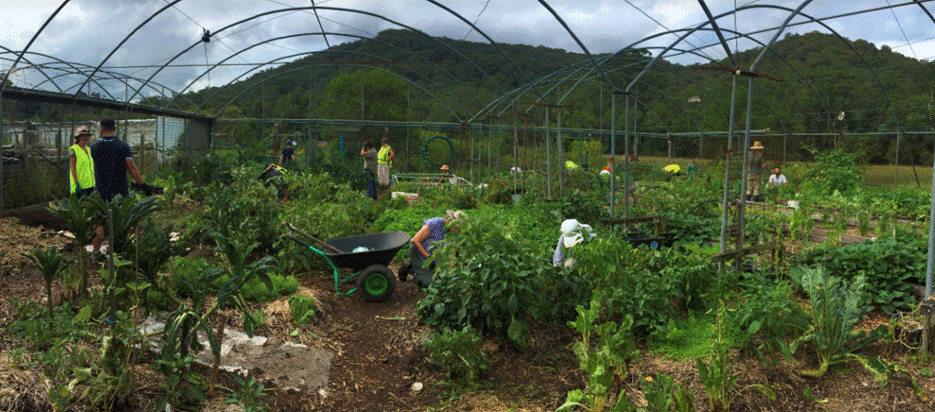
-Rafaele Joudry
“This new form of community living is an ideal blend of the traditional village that people have lived in for thousands of years, and the more modern “intentional community.”
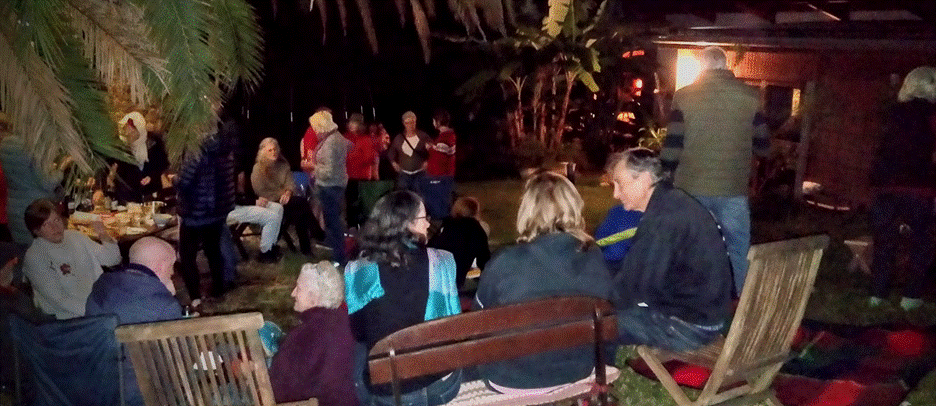
I have wanted to live in an ecovillage since I was sixteen. I checked out some communities when I left home in my late teens, but they were all too religious-based.
During my career as a Social Worker and Community Developer, I observed the communes that formed in the 70s and didn’t feel drawn to them. In my thirties I read a book about intentional communities in Australia, and they all seemed to have come apart when people drifted back to the cities. It was only in the last decade or two that I started hearing about ecovillages.
This new form of community living is an ideal blend of the traditional village that people have lived in for thousands of years, and the more modern “intentional community.”
After visiting a few ecovillages, which were too remote, too small or lacked real community cohesion, I was delighted to discover Narara Ecovillage so close to Sydney, and with all the traits I was looking for: A diversity of ages and family types, active engagement in self-governance, well run, inclusive meetings, and a diverse landscape with opportunities for all sorts of agricultural, engineering, social and environmental activities.
I moved to Narara Ecovillage six years ago, and haven’t looked back. Wanting to share the village living experience with others, I created an event called Ecovillage Experience Weekend, which offers a fully immersive, residential weekend of ecovillage activities.
It’s a great way to experience the benefits of ecovillage living, to take home to your own suburb or community, and to discover if this way of living is for you. Learn more about the event here https://nararaecovillage.com/narara-ecovillage-experience-weekend-sept-2024/
Weed of the Month: Fireweed

– Donna Carey
Fireweed (Senecio madagascariensis) is a weed of national significance. It is a pretty yet poisonous yellow flowering weed that is often found in paddocks and pastures. Fireweed is flowering now, which means it can be easily found and removed.
What does it look like?
Fireweed, is a Class 4 noxious weed in 18 local government areas of NSW, including Gosford, under the NSW Noxious Weeds Act 1993 (The plant must not be sold, propagated or knowingly distributed). It is an annual herb (that is a small plant) which originates in South Africa.
It is a heavily branched daisy plant with serrated leaves. Its main characteristic is the mass of small yellow daisy flowers which are seen mainly from winter to spring. The flowers are a golden yellow and have 13 petals surrounding the yellow centre.
Each fireweed plant may produce as many as 30,000 seeds as a single yellow flower can produce between 100-150 seeds and there can be as many as 200 flowers per plant.
Why is it a problem?
This plant is poisonous to both horses and donkeys, and other livestock such as cattle, sheep, and goats can also suffer from this widespread weed.
What do I do when I find it?
Wearing gloves, pull it out – making sure you get the roots and not just the stem – place it in a plastic bag and put it in the bin. Do not try to compost it.
Even after being removed from the soil, fireweed is still toxic to stock, and if it is flowering, it can still produce viable seed.
Whatever the situation, once established, fireweed is extremely difficult to eradicate. Therefore, follow-up treatment is essential for control to be successful.
Reference & more info: https://weeds.dpi.nsw.gov.au/Weeds/Fireweed
My enchanting journey at Narara Ecovillage: learning, growth and connection
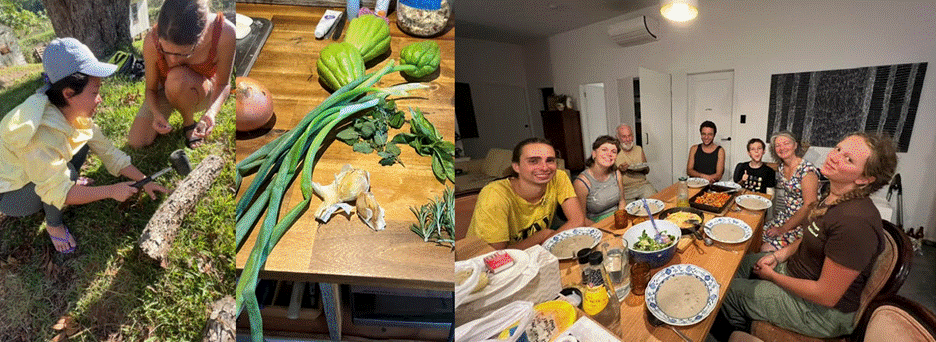
– YaYu Chen
Earlier this year, YaYu Chen from Taiwan helped to build a member’s house and to participate in village life. She appreciated the opportunity to immerse herself in village activities and local culture, and describes her experiences building, gardening, dancing, and cultural sharing
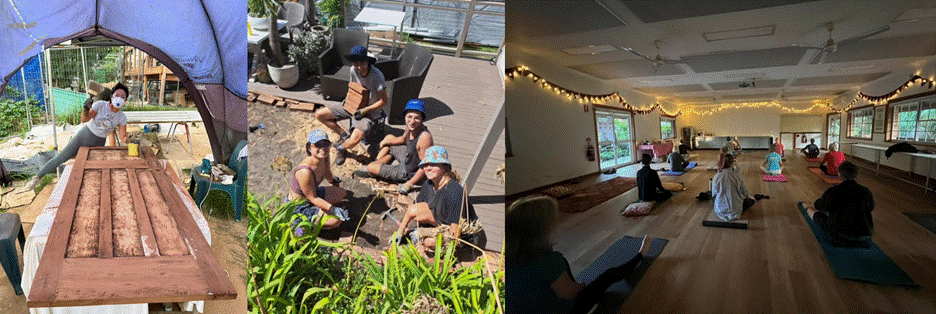
From March to April 2024, I had the incredible opportunity to immerse myself in the Narara Ecovillage (NEV) near Sydney, working alongside amazing people like Megan and John on their energy efficient home. Our mission was to help build their eco-house, a task that involved collecting pavers and sanding recycled doors. These were completely new experiences for me, and they turned out to be profoundly rewarding.
Every day, we gathered at Megan’s place for dinner, taking turns to cook and share special dishes from our diverse backgrounds. We shared our ups and downs on the table; from John’s adventure to their son River’s newest interest. Megan opened their home generously and welcomed the volunteers with a warm heart.
During my stay, I was lucky to stay in Candy and David’s tiny house. David was always helpful and energetic. And Candy, one of the kindest and most wise-hearted individuals I’ve ever met, welcomed me warmly. I assisted with watering plants and weeding, learning about plants and finding the joy in the simplicity of tending to nature.
One of the highlights of my time at Narara Ecovillage (NEV) was the weekly “Dancing in the Dark” sessions with fellow volunteers and residents. Gen created a playlist which allowed our true selves to dance freely.
The time spent with fellow volunteers was magical. Night strolls under a starry night, guessing the name of stars, and picnics alongside beaches. Like minded people often gather together and although we all lived differently and were from different cultures, we still share many similarities.
Weekends in NEV were equally vibrant, with many trips to Central Coast beaches, baking, biking, and hiking. I also participated in unique activities like ‘The New Moon Ceremony’, trying my hand at inoculating logs with mushrooms, a vegan festival and ‘The Bunya Nut Festival’ . These experiences broadened my understanding and knowledge of sustainability and the beauty of cultural traditions.
Apart from the energy efficient, sustainable homes, I also admired the sustainability practices at NEV. The village has a food-buying group, ‘The Village Pantry’, which operates on a unique schedule, currently opening three times a week. Completely different from the 24/7 convenience stores, this thoughtful approach to resource management was both inspiring and practical.
My time at Narara Ecovillage was filled with learning, growth, and connection. The friendships I made, the cultural exchanges, and the shared work toward a sustainable future have left an indelible mark on my heart. I am immensely grateful for the memories and the life lessons that continue to inspire me every day.
What our Coffee Cart is doing about “forever chemicals” and other destructive waste
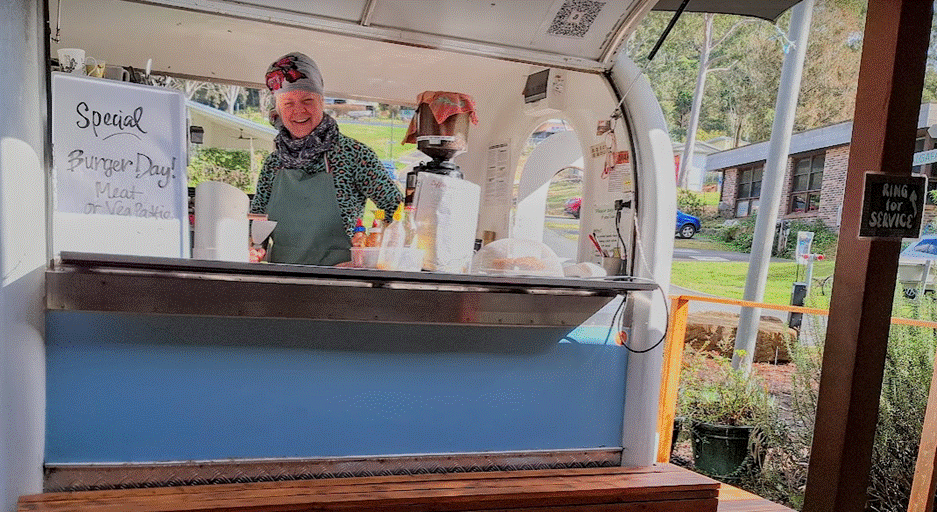
– Candy Disch, Narara Ecovillage Coffee Cart founder
There are many simple ways we at the Coffee Cart minimise our participation in the industrial waste stream. Most of these ways are also available to householders across Australia. Here are four …
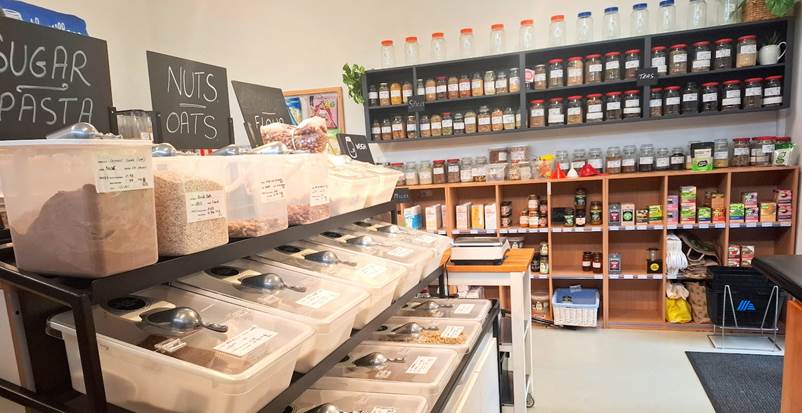
- Minimise packaging and buy local where possible
Our Coffee Cart buys most groceries from our food buying group in the village, thereby minimising packaging. The Coffee Cart also buys from local suppliers in bulk, which cuts down further on packaging as well as food miles.
If you can’t start your own food buying group, there are bulk food suppliers in many suburbs (eg Village Wholefoods in Marrickville Sydney), and many local farmers markets throughout Australia. There are also a number of non-corporate organisations, such as Reko, Box Divvy, FIG (Central Coast) and the Open Food Network.
- Grow your own if you can, and cook from scratch
We grow as much of our own fresh food as possible in the village, and produce many value-added products which circulate amongst us.
Even one parsley plant growing in a pot can make a difference.
- Composting
We try to avoid using compost from commercial nurseries on our common gardens because, as has recently been in the news, that can come from biosolids laced with PFOS, PFAS, heavy metals (treatment plants only test 4 chemicals: arsenic, cadmium, lead, xxxxx), industrial waste and pharmaceuticals. Instead, we use our own green waste to make the compost which feeds our common gardens.
Food scraps are a great resource and, if you can’t compost in your own space, many local councils are now introducing bins where they pick up food compost. This reduces landfill and produces clean usable nutrients to grow more food in future.
- Talk to people
We are constantly learning from each other new ways to keep “forever chemicals” out of our bodies and the environment. The best thing I’ve learned is: don’t buy anything with light plastic wrapping or plastic in general. I replace it with steel or glass and reuse, and I don’t cook with teflon or aluminium cookware.
NEWS
Tax deductible donations now can be accepted by Narara Eco Living Network
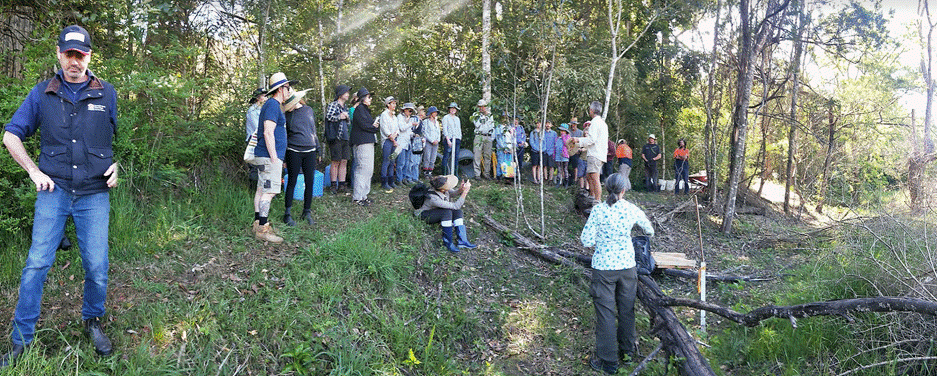
–Dave Burrows
Narara Eco Living Network, Inc (NELN) is proud to announce that we are now a registered charity and can accept tax-deductible donations. Our remit is protection of the natural environment, including education & research into ways of living sustainably.
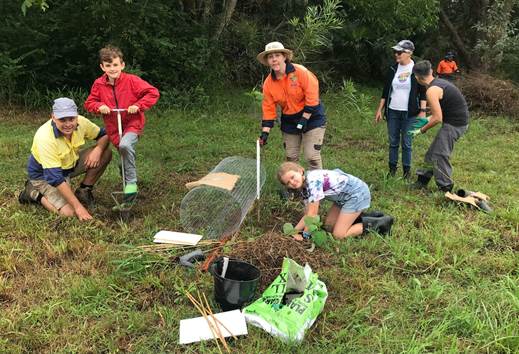
Narara Eco Living Network, Inc (NELN) is proud to announce that we are now a registered charity (ABN 95 813 021 962), endorsed as a deductible gift recipient under Subdivision 30-BA of the Income Tax Assessment Act 1997.
All donations to NELN above $2 are tax deductible.
The specific remit of our charitable status is Charity Subtype 10:
Advancing the natural environment including:
- protecting, preserving, caring for and educating the community about the natural environment
- preserving native flora and fauna
- rescuing or caring for native animals
- preserving or rehabilitating habitats.
NELN will use donations for:
- the protection and enhancement of the natural environment, particularly bushland and riparian land on the Central Coast of NSW, with specific focus on Narara Creek;
- the provision of information or education, or the carrying on of research, about the natural environment or a significant aspect of the natural environment (including all aspects of sustainable building and living).
We have set up a donations page on the NELN website (neln.org.au) so that donors can pay by credit card, Paypal, Apple Pay, Google Pay etc.
Please donate if you can, and please inform your friends and relatives who may feel like supporting NELN’s work and receiving a tax deduction.
Update: Rezoning success opens up new horizons
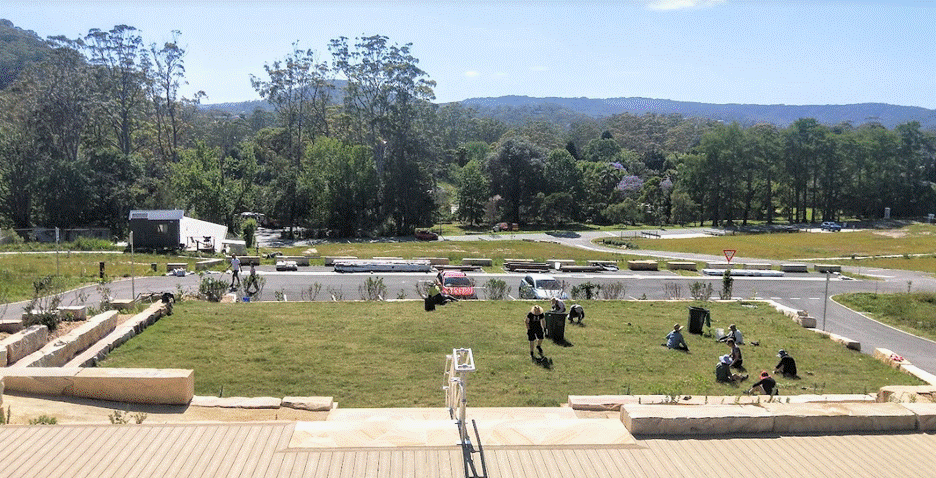
-Lyndall Parris, Narara Ecovillage founder
A key component of Narara Ecovillage’s aim is to be a demonstration ecovillage, showing and telling aspects of social, environmental and economic sustainability. So we are thrilled that after many years, our rezoning proposal has been successful, allowing us to explore new possibilities in village living.
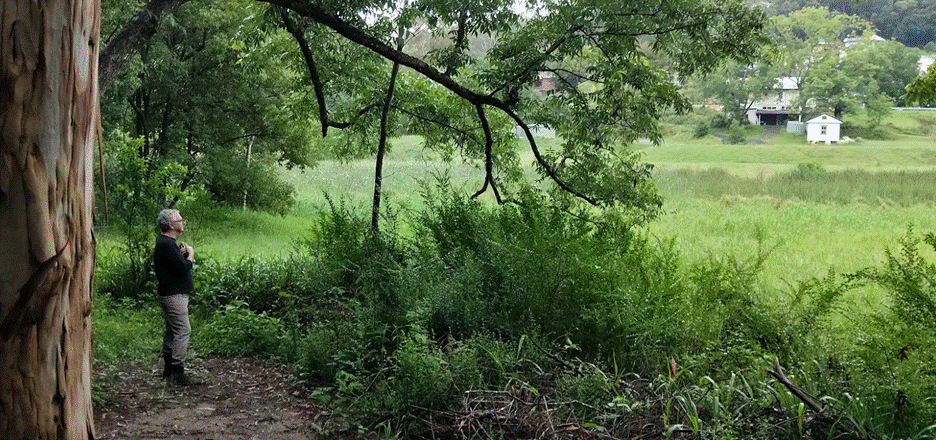
Now we can move towards upgrading our Coffee Cart into a full-scale Café, increase our food production, develop eco-tourism opportunities and more. It is an exciting time to be a Nararian!
The possibilities for building a home at the ecovillage have also expanded, including smaller 450sqm lots, and potential for multi-unit and even shop-top housing!
If it’s been a while since you visited us, you might like to come to one of our monthly Open Days (next one Saturday 31 August) as our guest (normally $20/person). Just bring along a copy of this part of the newsletter, and no need for you to register online. Another opportunity is to attend an Ecovillage Experience Weekend – the next one is on the 13-15th September 2024.
- Please check out the Events link on our website: nararaecovillage.com
- If any of the above interests and excites you, please contact us: info@nararaecovillage.com or organise a morning Coffee and chat with me at our Coffee Cart, open from Tuesday to Saturday, I’d really enjoy that and the coffee is on me! Lyndall@nararaecovillage.com or 0419 279 711.

EVENTS
Sat 24 Aug: Coast Climate Action Festival at Narara Ecovillage
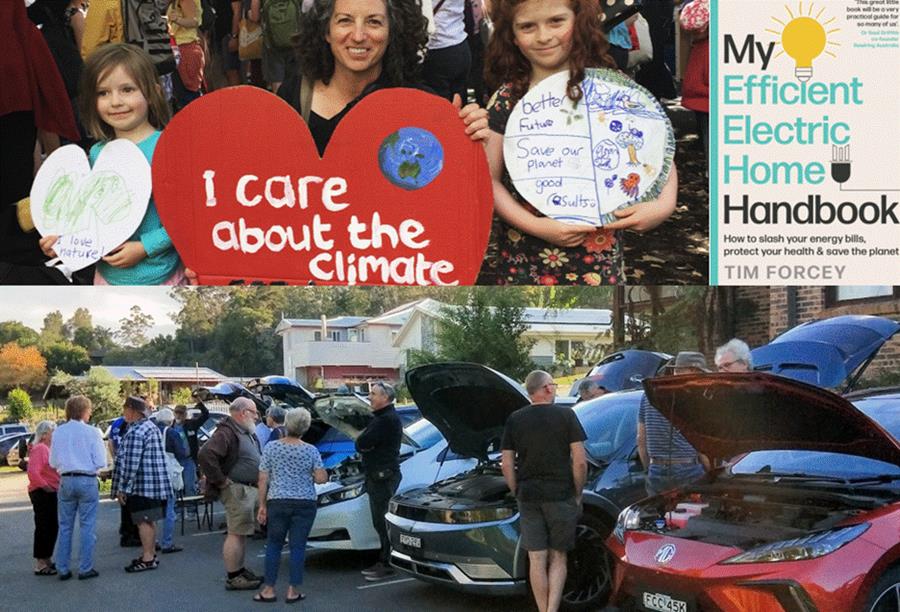
Featuring:
- Talk by Tim Forcey, author of My Efficient Electric Home Handbook
- Tour of community solar and battery solutions & ecohomes
- Electric Vehicle (EV) showcase
- Launch of Parents for Climate Central Coast group
- Kids entertainment provided
- Cake stalls & coffee cart
And we want to hear from you: How can we accelerate climate action on the Central Coast?
- When: Saturday 24 August 1pm-5pm
- Where: Narara Ecovillage Hall, 33 Gugandi Rd, 2250
- Cost: Free – donations welcome.
- More info & Registration: https://www.parentsforclimate.org/launch_of_parents_for_climate_central_coast
Sat 31 Aug: Narara Ecovillage Open Day
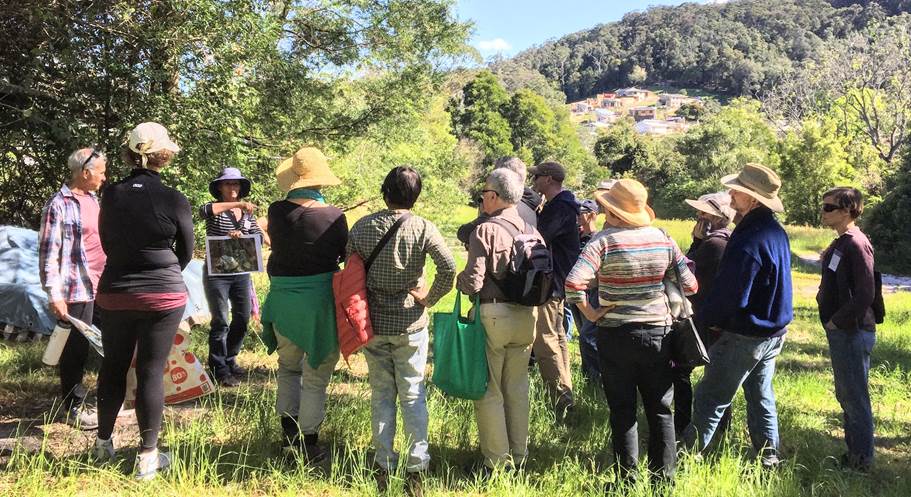
The Open Day (talk and tour) shows what Narara Ecovillage is all about, and demonstrates how we are activating a resilient community with ecological, social and economic potential by:
- shared food growing, natural retreats and Permaculture spaces
- shared community and workplaces
- examples of highly efficient low-carbon homes now and in the next stage
All are welcome.
- When: Sat August 31, 10.30am – 1.30pm
- Where: Narara Ecovillage Hall, 33 Gugandi Road 2250
- Cost: $15 includes talk & walking tour around village, kids & NELN members free!
- More Details and Registration
- If this is your first visit to Narara Ecovillage, you may find this interesting: the Open Day Preview introduces the ecovillage and its unfolding story.
Sat 31 Aug: Screening of short film, The First Wave
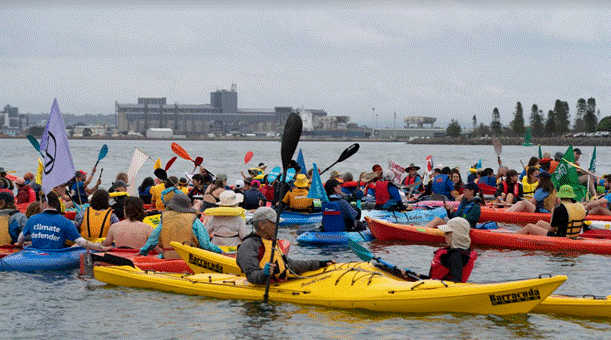
The Rising Tide Central Coast Hub will show the short film, The First Wave, about the 2023 blockade of Newcastle coal port.
- When: 2pm on Saturday August 31
- Where: Narara Ecovillage Hall, 33 Gugandi Rd, 2250
- Cost: A gold coin donation would be appreciated. Free for anyone attending the Narara Ecovillage Open Day in the morning.
- More info: Dave Burrows: db042042@gmail.com
Sat 31 Aug- Sat 14 Sept: Australian Plants Society, Central Coast online Spring Sale

Our very popular online Sale is on again, offering 50 species of native plants, mostly endemic to the Sydney Basin/ Central Coast. Our past online sales have been extremely popular, with plants selling out early, so put it in your diary!
- When & Where:
- 1) Sat AUG 31 to SEPT 11 2024: Order: the catalogue goes live (includes photos and plant details)
- 2) Sat SEPT 14: Pick up at 21 Old Mount Penang Road, Kariong, 2250
- Prices: from $5.00 for 70mm pots, $10.00 for 90mm and $12.00 for 140mm pots.
- More info, enquiries & resources, (& catalogue after AUG 31): https://austplants.com.au/central-coast-plant-sales
Thu 5 Sept: Talk: Dracula orchids, mushroom mimicry and other wonders of the Los Cedros Reserve

An evening with Bitty Roy- Biology Professor Emerita, Institute of Ecology & Evolution, University of Oregon “A kind of travelogue about how I decided to do research at the reserve (on Dracula orchids that mimic mushrooms), what doing research there was like, how we fell in love with the place, and what we did to protect it when it came under threat.”
- When: Thursday Sept 5, 7-9pm
- Where: Narara Ecovillage Hall, 33 Gugandi Rd, 2250
- Cost: This is a benefit for the Los Cedros Biological Reserve in Ecuador – tickets are on a sliding scale $5 to $100
- More info & Registration: https://shorturl.at/TXc4z; Facebook Event: https://www.facebook.com/events/2009720882758238
Fri 13- Sun 15 Sept: Ecovillage Experience Weekend
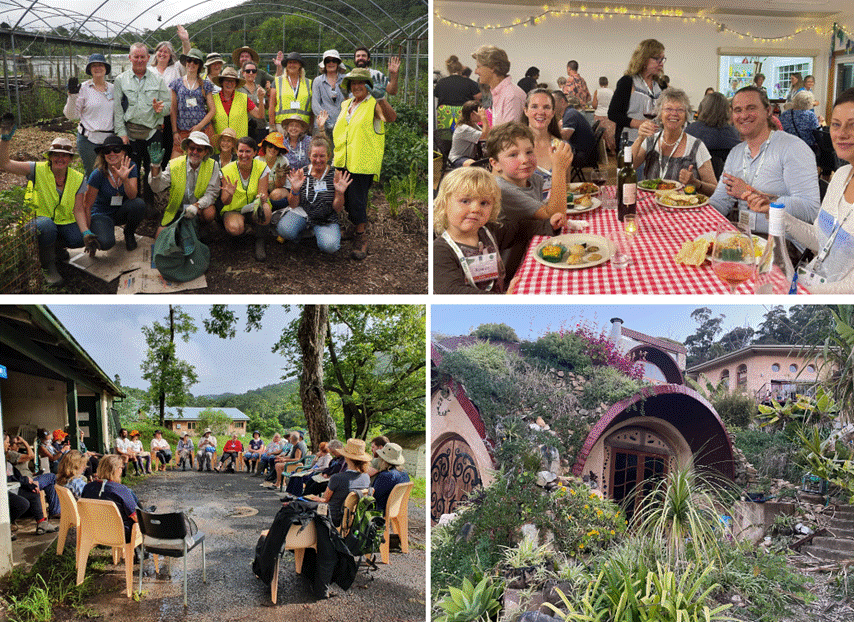
For two days you can eat, work, sing, play and learn alongside Narara Ecovillage members. Come and stay for a weekend while you soak up the vibe of this open, welcoming community.
- When: 4:00 pm Friday Sept 13th to 4:00 pm Sunday Sept 15th
- Where: Narara Ecovillage, 33 Gugandi Rd, 2250
- Cost: from $299.00, including lunch, dinner & all activities. Kids just $100.
- More info, program & Registration: https://nararaecovillage.com/narara-ecovillage-experience-weekend-sept-2024/
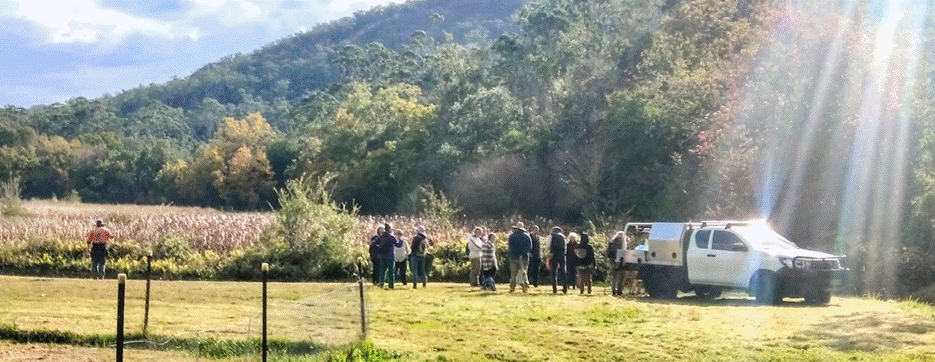
Sunday 22 Sept: Alana Wilkinson live at Narara Ecovillage
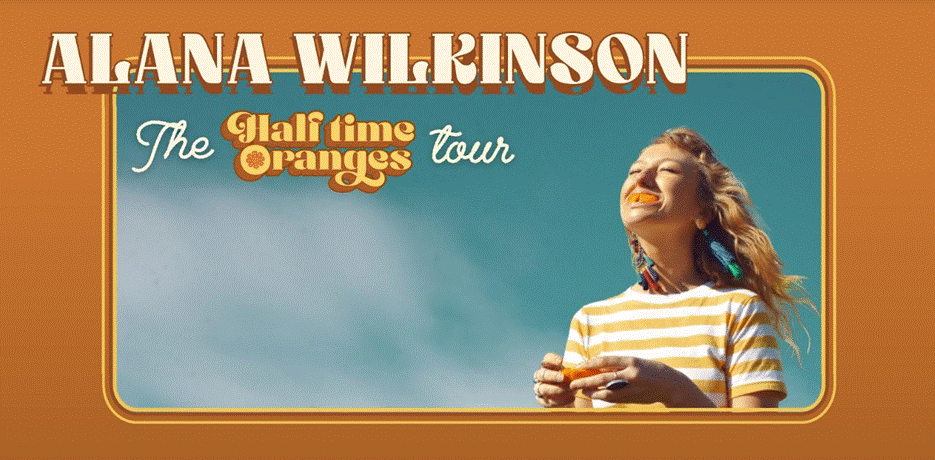
Award-winning songwriter and sunshiny festival favourite Alana Wilkinson is taking her debut album ‘Half Time Oranges’ on the road.
Alana is a multi-talented singer-songwriter known for her infectious energy, witty lyrics, and captivating stage presence. Blending folk, pop and comedy, her performances are a delightful mix of heartfelt songs and humorous anecdotes that leave audiences both laughing and reflecting.
Alana’s engaging storytelling and melodic prowess make her a standout artist in the Australian music scene.
- When: Sunday 22 September 2024, doors open 3:00pm, music from 3.30pm, end 5.20pm
- Where: Narara Ecovillage Hall, 33 Gugandi Rd, Narara 2250
- Cost: Adults $30, Concession $25, Family $90, Children $20, Under 5’s free
- More info & Registration: https://www.facebook.com/events/1257806182261948/
Sun 13 Oct: Woytopia!
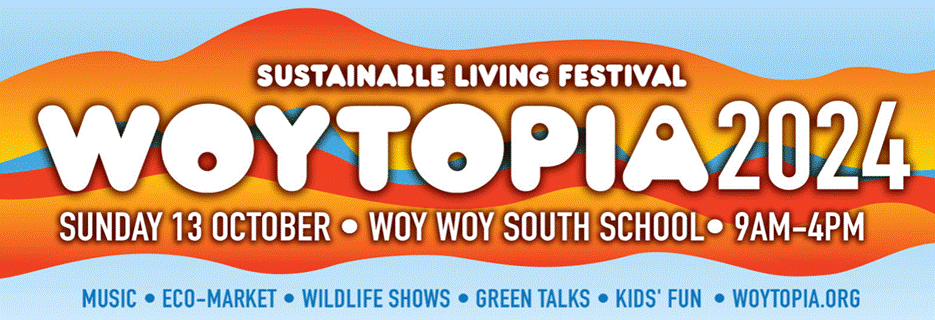
- Where: Woy Woy South School
- When: Sunday 13 October, 9am-4pm
- More info:https://www.facebook.com/woytopia/
Fri 15- Sun 17 Nov: Deep Ecology Immersion & Deepening at Narara Ecovillage

-Hosted by John Seed, Jane Lynch & Tema Milstein UNSW Professor of Environment & Society
Deep Ecology is a philosophy which understands that the illusion of separation between humans and the rest of the natural world is the engine driving the 6th mass extinction currently underway.
This transformative workshop allows us to become aware of our rootedness in the living Earth and the renewal, empowerment and vision that invariably ensue.
“Having John Seed, as the father/founder of these Deep Ecology Experiences, living in Narara Ecovillage and running the Experiences, based so closely to Sydney, is an amazing boon for change.” – Tema Milstein
- When: 4pm Friday 15th to 4pm Sunday 19th November, 2024
- Where: Narara Ecovillage Hall, 33 Gugandi Rd 2250
- Cost: $150 TO $600 according to your means. Includes meals. 25% of proceeds go to rainforest conservation. 20% discount for current Network members (Access hidden tickets; Code “NELN”; Enter “1” ticket and then fill in the form.)
- More info & Registration here
Other Deep Ecology workshops around Australia this year. Reviews from previous participants.
ALL Fridays: Low-impact ZUMBA

A low-impact dance class for those who are a bit older, managing an injury, new to dance or neurodiverse individuals. It’s great exercise and fun.
- When: Every Friday, 11am-noon
- Where: Narara Ecovillage Hall, 33 Gugandi Rd 2250
- Cost: $15 per session: first session free!
- How: Just turn up. Queries: Carin: brightdiets@gmail.com or registerat this link
OTHER MESSAGES
Wanted! a market gardener
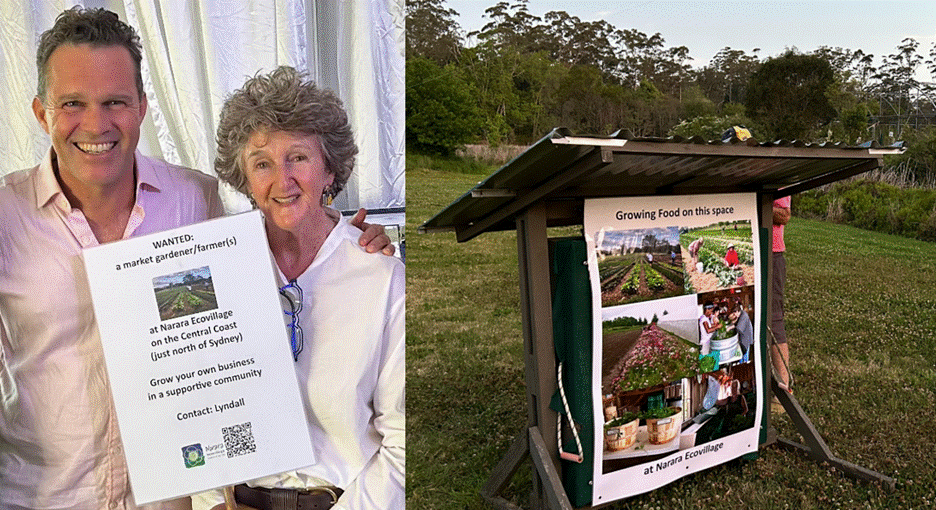
Lyndall with Dr Zach Bush at the Farmer’s Footprint gathering in Byron Bay; Sign at Narara Ecovillage
Narara Ecovillage is looking for a market gardener/farmer.
- You are one? You know one?
- More info: please contact: Lyndall@nararaecovillage.com
Land or houses for sale at Narara Ecovillage
Please check out this page on the village website: “AVAILABLE NOW” at NEV
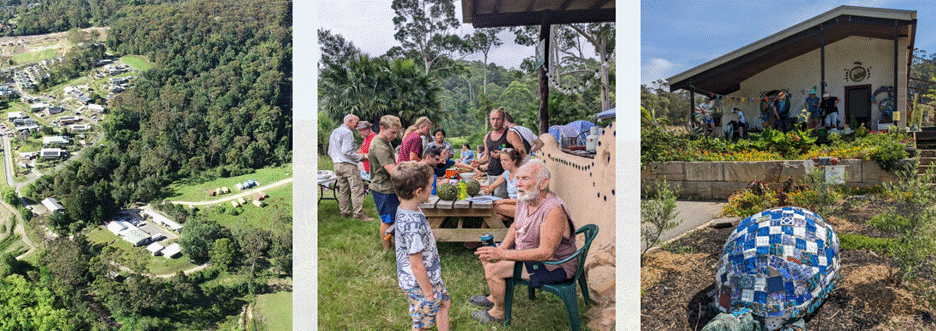
Contact the Network News Editors neln.network.news@gmail.com

